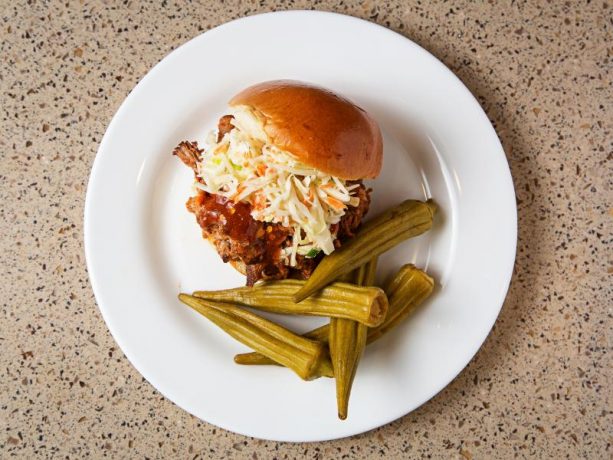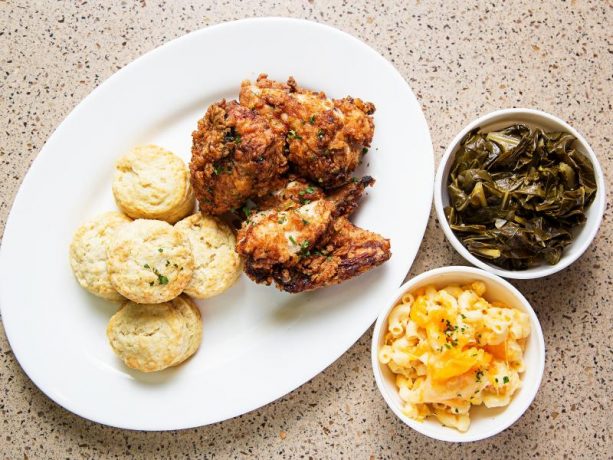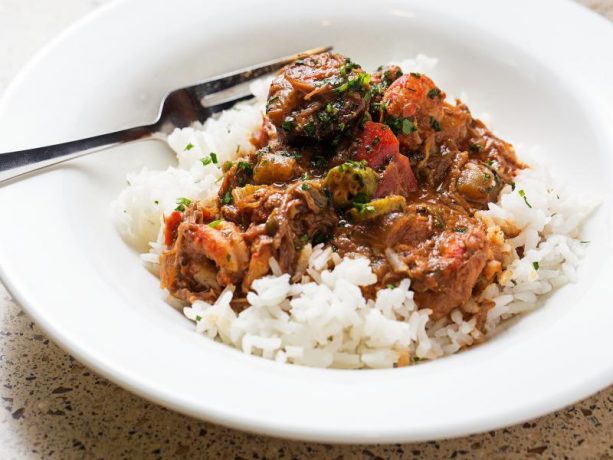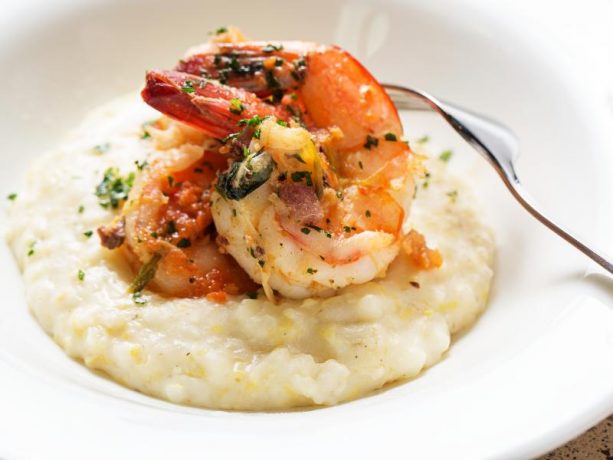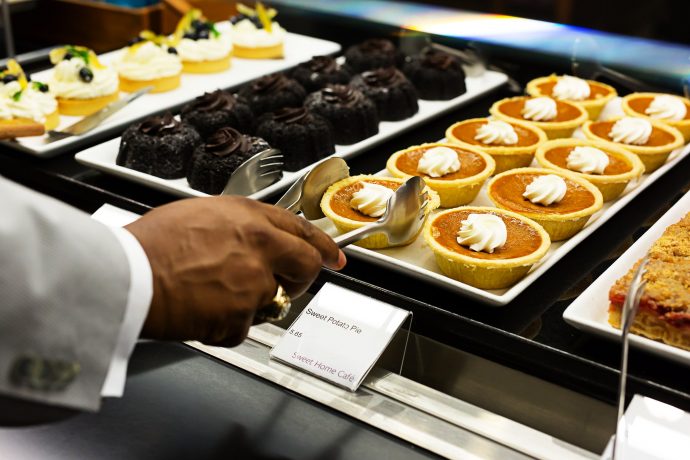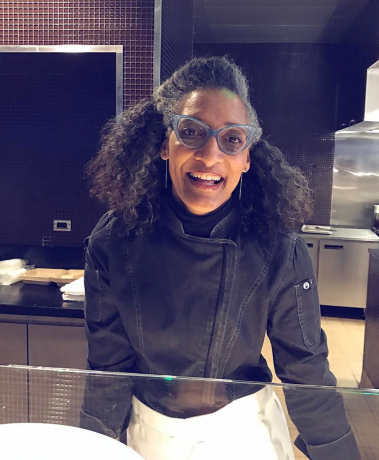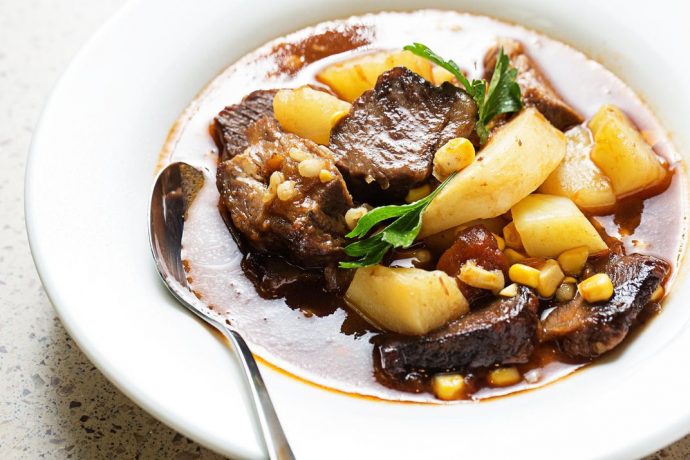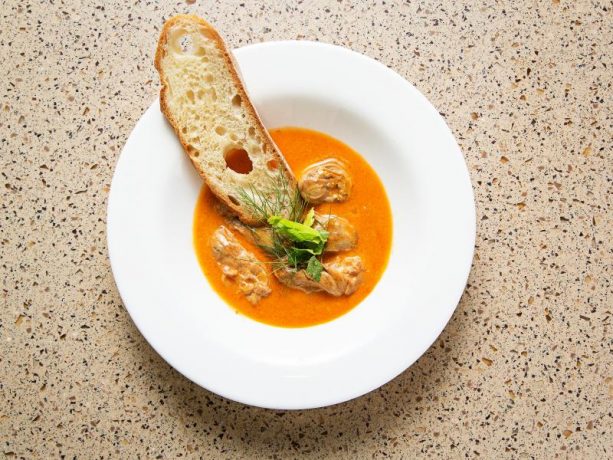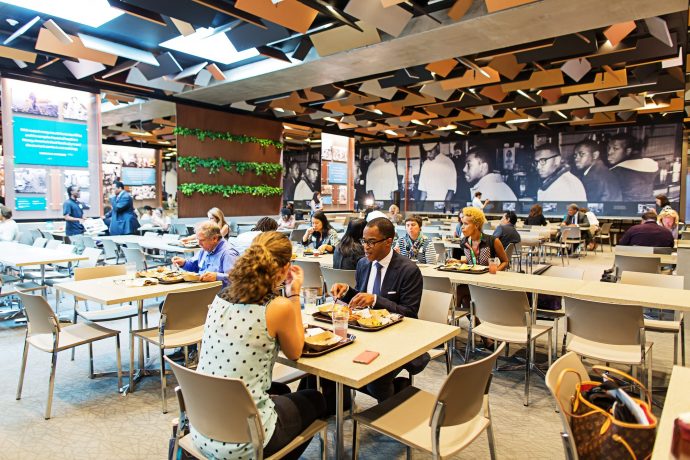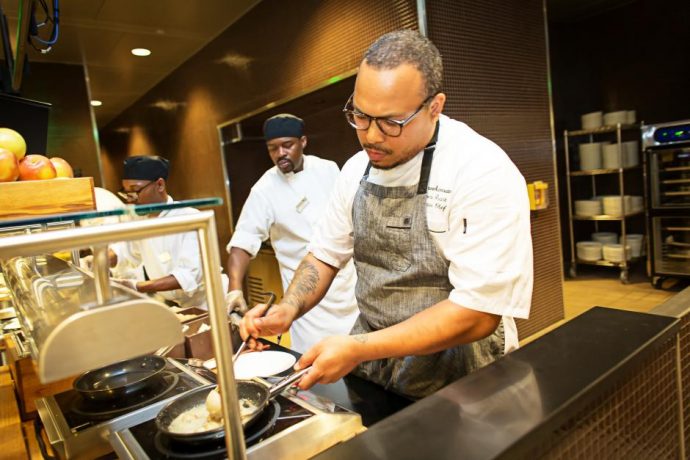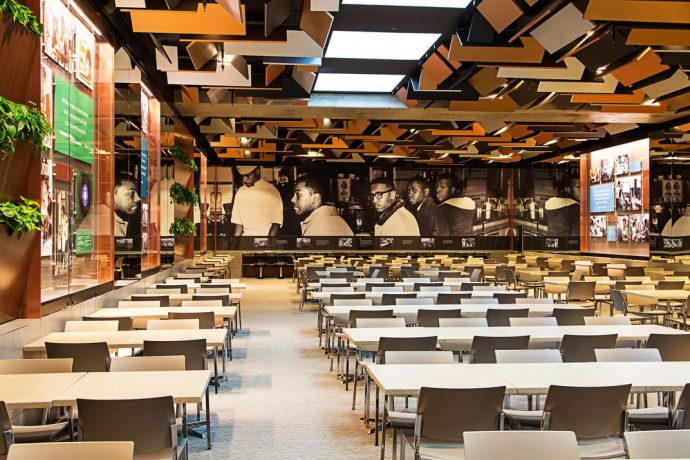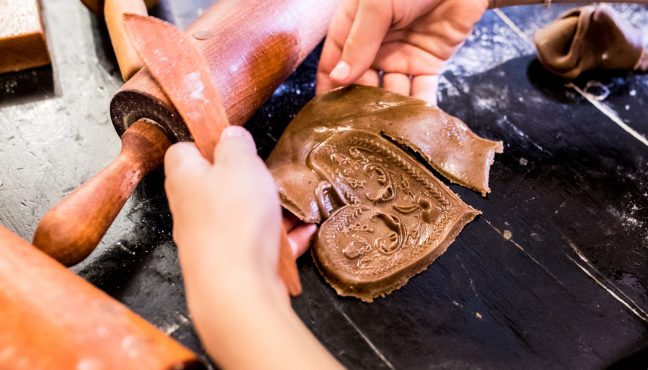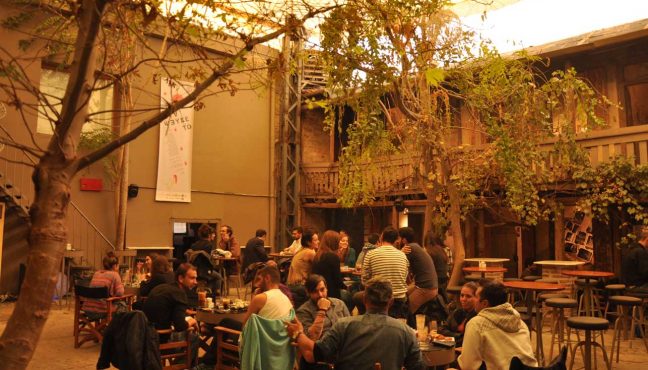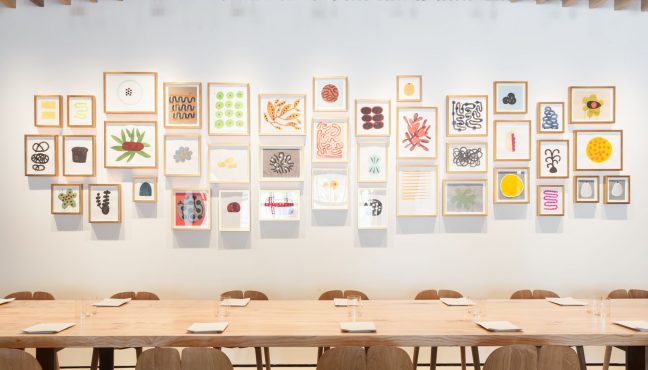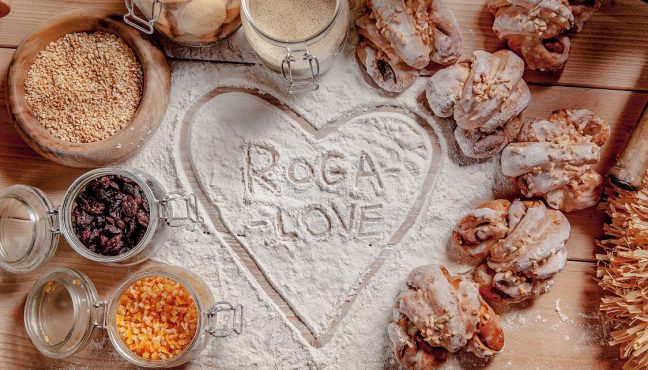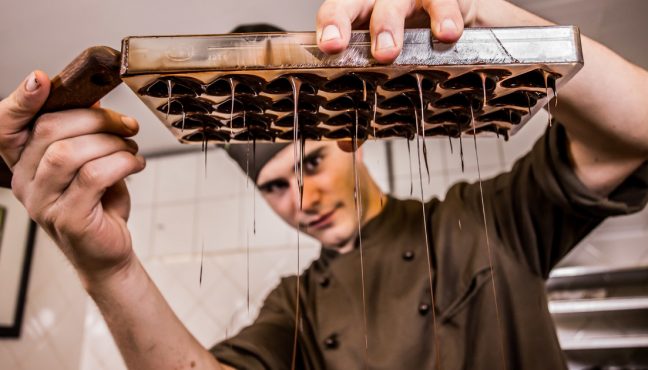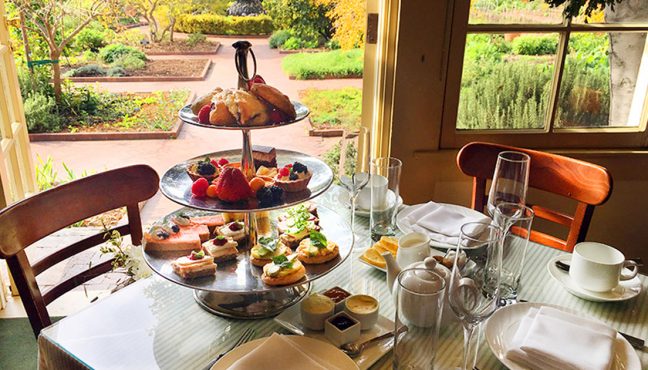The National Museum of African American History and Culture (NMAAHC) cuts to your heart. A hard-fought, complicated project 100 years in the making was so worth the wait! More than 35 000 objects relating to African American history, slavery, segregation, civil rights, community, arts, religion, philosophy and psychology – you name it, it’s there! We were touched, inspired, saddened, cheered, and after this 4-hour rollercoaster of emotion we needed to sit down and collect our thoughts. Thankfully we decided to stop by the Sweet Home Café headed by executive chef Jerome Grant and supervising chef Albert Lukas.

Sweet Home Café is divided into four sections representing the geographic regions of African-American food culture – the Agricultural South, the Creole Coast, the North States, and the Western Range. Better come in hungry, if we had Tupperware with us, we would shamelessly take home as much as we could! Just see some of the menu: Buttermilk Fried Chicken, Gulf Shrimp & Anson Mills Stone Ground Grits, Cranberry Walnut Vinaigrette, not to mention Johnston County sweet potato pie, Wild Turkey pecan pie and Banana Pudding Trifle.
Even though the café is very busy (if you can go there before noon we suggest doing so, in peak hours the line can reach up to 45 minutes) the food was delicious and of the best quality, worthy of a fancy restaurant. Without a doubt the Sweet Home Café team members loves what they do – from cashiers to the chef himself – you can feel it and taste it. The atmosphere adds to the experience, not for a moment you forget where you are seeing images and quotes from historical and modern black voices and the stools lining the walls of the 400-seat cafe, recalling the Greensboro sit-ins in North Carolina, a series of nonviolent protests in 1960s which led to partial removal of racial segregation in the Southern United States’ stores. The brave civil rights activists led to increased national sentiment at a crucial period in US history.
Digging in Roast Sweet Potatoes or Golden Corn & Chanterelle Empanada you can be sure that each dish has a story. Albert Lukas and Jerome Grand made sure of it! For two years they have been travelling, studying and savouring foods, wandering through local markets and chatting with renowned chefs as well as culinary archive keepers across the United States. Take Thomas Downing-inspired Oyster Pan Roast. When African-American Thomas Downing became free, he moved to New York, where he opened a renowned Downing’s Oyster House. There in the basement, he and his sons housed escaped slaves as a stop on the underground railroad. Today his name is commemorated by the dish made with local oysters from the Chesapeake.
Or take The Son of a Gun Stew: the dish became popular in the West after the Civil War, when newly emancipated African Americans moved there to become ranchers. Son of a Gun Stew incorporated low-grade meats that wouldn’t have been sold at market. Taking inspiration from that, the café offers a stew of braised short-ribs with corn, turnips, potatoes, barley and sun-dried tomatoes. Another example: Po’Boy chicken sandwich. It was created by the New Orleans restaurant owners Bennie and Clovis Martin to feed the streetcar conductors that were on strike in 1929 due to inhumane working conditions. When a striker came in, someone would alert the kitchen “here comes another poor boy!” The sandwich itself sits in the culinary circle of African American cuisine, has regional variations throughout the country and a unique satisfying taste in the Sweet Home Café.
If you are coming with the little ones, don’t miss the kid-friendly menu section, located near the Agricultural South. And if you don’t feel like paying $3.50 per water, the fountain filtered water is free. The menu is seasonal and while the weather allows, you can seat outside and have the original soul food with iced tea and lemonade mix “aka Arnold Palmer” or Cranberry Maple Fizz after diving into the most thoughtful, accurate, intelligent and rich description of the African American history and culture.


